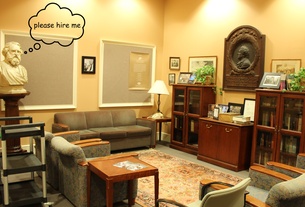Bok quickly appointed his close friend and colleague John T. Dunlop, a former United States secretary of labor and former chair of the Economics Department, as the University’s chief negotiator.
With that, Harvard and its new union set to work preparing its first contract.
A UNIQUE APPROACH
Looking back, many involved in the first negotiations said it marked a new way that workers and employers bargained and embodied an even more significant philosophical shift in regards to the role of unions.
For one, School of Engineering and Applied Sciences professor Frederick H. Abernathy, a friend of Dunlop, described the “enormous diversity” of professions and differing priorities of unionized workers—with older workers focused more on retirement benefits and younger workers chiefly concerned with education and forming a long-term career—that made the task of negotiating initially difficult.
To deal with the wide variety of issues to be discussed, Dunlop created eight subcommittees and tasked each with addressing a specific topic of the intended contract, hoping to pinpoint workers’ differing concerns and ultimately resolve each of them in a specialized contract.
“All of this somehow or another led the late John Dunlap to decide we would have a contract unlike any other union contract,” Abernathy said.
Many HUCTW workers and student supporters attributed their close relationship with the University in their first negotiations to the philosophy set forth by Kris Rondeau, then-director of HUCTW.
“There was something very inspiring about watching that bottom-up organizing,” student advocate of HUCTW Noah M. Berger ’89 said. “It wasn’t about being critical of the employer, it was about the basic principle that work is important in people’s lives, what they do at work is important, and people have a voice in shaping their work lives.”
Rondeau was an “unusual union leader,” Bok said. “She made clear to me her objective was not to fight with the University, but try to achieve changes that would not only strengthen or benefit her members, but also make the University a stronger and better place.”
In the end, the contract took less than a year to finalize. The final product took the benefits package from “fairly good” to “world class,” Jaeger said.
While the union and administrators had seemed to have formed strong and constructive relationships, the “amazingly positive” results of the first negotiation were still surprising and unexpected, Jaeger said.
Though Bok said he did not receive much pushback from faculty or administrators, except for a confrontation in which he was accosted on the subway for his negotiations with the union, others said some felt felt uneasy about the finalized contract.
“Some lower-level administrators thought that John Dunlap had given them too much in the way of wages,” Abernathy said.
A CHANGING DYNAMIC


